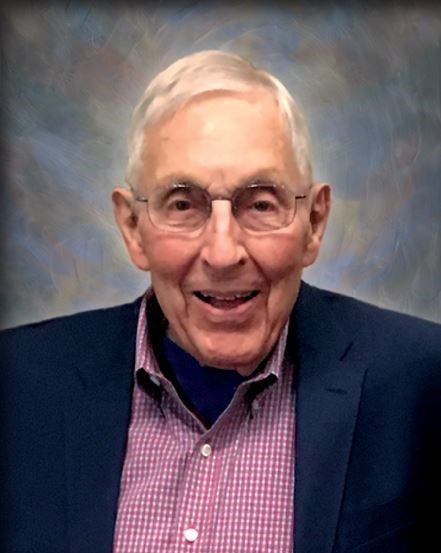
OBITUARY
Charles Alden Berry MD
September 17, 1923 – March 1, 2020

Charles A Berry MD., 96, of Houston, Texas passed away on March 1, 2020. He began his career at the University of California, Berkley, in 1941. Four months later, after the attack on Pearl Harbor, he enlisted in the Navy, but remained at the University of California to finish college and then attend medical school at the University of California, San Francisco. Before he finished, he was discharged from the Navy with no further obligation, and received his medical degree in 1947. After Internship at the San Francisco General Hospital, he went into the private practice of medicine in Indio, California.
When the Korean War broke out, Dr. Berry joined the Air Force, and was assigned as the Chief of Internal Medicine at a base hospital in northern California. After 3 months, he was invited to participate in additional medical training in a new field, aviation medicine. He later came to learn that this was actually a Residency in Aviation Medicine. Thus, as one of the first to attend this new aviation medicine Residency, he moved to San Antonio, TX, to the U.S. Air Force School of Aviation Medicine (USAFSAM). After a year of training at USAFSAM, he was sent to Panama, where he served for 3 years as a Flight Surgeon, assisting Central and South American countries to set up their own aviation medicine programs, and flying rescue missions. When he returned to the United States, he completed his Residency by receiving his Masters Degree in Public Health from Harvard University’s School of Public Health. He came back to San Antonio in 1956, and became Chief of the Department of Flight Medicine at USAFSAM. During that time, he sent pilots in balloons and aircraft, to various high altitudes, including to the edge of the atmosphere, to see how their bodies would react physiologically.
NASA was created 2 years later and, in 1957, Dr. Berry was one of the physicians selected to fly to Washington to help select test pilots to ”fly”, ride in, a military rocket into outer space. These pilots were later referred to as ‘astronauts’. Dr. Berry was later chosen to participate in the selection of the first seven NASA astronauts. He and his fellow physicians devised ways to test these pilots to see which ones would best meet the demands of space as then understood. They were also responsible for finding ways to monitor these astronauts while in space.
Dr. Berry then left the Air Force after 16 years, to begin his NASA Career. Dr. Berry worked for NASA (from 1959-1974), selecting subsequent classes of United States’ astronauts to follow the Original Seven. In all, he helped send 42 individuals into space over 30 missions, including the Apollo 11 mission during which Neil Armstrong walked on the Moon. On that mission, he monitored the crew. He retired from NASA as the Director of Life Sciences. In 1974, he became the first President of the University of Texas Health Science Center Houston, in Houston, TX. In 1977, he took an additional position as House Physician at KPRC, Channel 2 News, in Houston, where he did on-air health segments. He became President of Preventive and Aerospace Medicine Consultants, P.A., in 1982. He was nominated for the Nobel Prize in Medicine and Physiology in 1979 and 1980. Within AsMA, he was the recipient of the Louis H. Bauer Founders Award, the Won Chuel Kay Award, the Theodore C. Lyster Award, the John A. Tamisiea Award, the Arnold D. Tuttle Award, and two President’s Citations. He was also AsMA President from 1969-1970, and the President of the International Academy of Aviation and Space Medicine from 1973 to 1975. Dr. Berry was a teacher, mentor, example and friend to Aerospace Medicine specialists the world over. Dr.Berry was preceded in death by his wife of 62 years, Addella Nance Berry and Grandson Jeremy Dudley. He is survived by son, Michael A. Berry, M.D.(Frankie), and daughters Charlene Forester (Dave), and Janice Dudley; grandchildren, Michael Berry, Jennifer Schlett, Matthew Berry, Courtney Suddath, Ryan Forester, and Megan Forester Salazar, Jay Dudley, Jennifer Dudley, and 15 great grandchildren.
For more on Dr. Berry’s life, please see NASA’s oral history interview with him (https://historycollection.jsc.nasa.gov/JSCHistoryPortal/history/oral_histories/BerryCA/BerryCA_4-29-99.htm) and UTMB’s Moody Medical Library papers (https://utmb-ir.tdl.org/handle/2152.3/7440).
Show your support
Add a Memory
Share Obituary
Get Reminders
DONATIONS
Past Services
Visitation
Funeral Service
Reception
SHARE OBITUARYSHARE
- GET REMINDERS
v.1.16.0